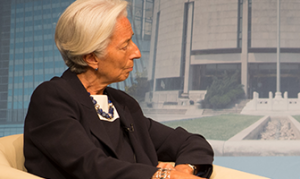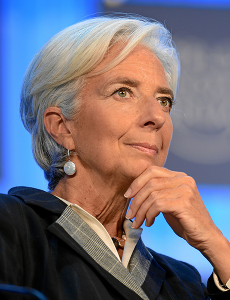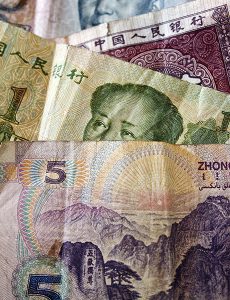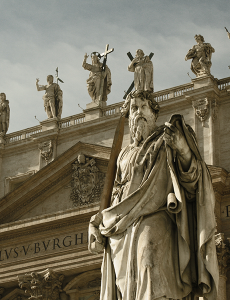Mark Sobel on Christine Lagarde’s ECB appointment, Summer Bulletin, and more
OMFIF update week 27 – 1-5 July 2019 Vol.10 Ed.27
COMMENTARY
Ignore Lagarde’s doubters
Christine Lagarde’s nomination to the ECB presidency has rightfully generated much positive commentary. But a chorus of doubters has also emerged – another French head will alienate frugal Germans; Lagarde is not a PhD economist; she has never been a central banker. Ignore the negativism, writes Mark Sobel.
THE BULLETIN
Living in a world on fire
Many influential policy-makers understand the urgency of climate action. The Network for Greening the Financial System illustrates well the increasing attention that world leaders are paying to the damage climate change is wreaking. The challenge that they face is nothing short of renovating modern capitalism.
COMMENTARY
Lagarde’s shattering ECB move
Christine Lagarde’s nomination to run the European Central Bank is a high-risk, French-orchestrated gamble that shatters the Bundesbank’s pretensions to influence the fate of economic and monetary union.
It confirms a new activist era in central bank policy-making, writes David Marsh.
PODCAST
The Financial Stability Oversight Council
The FSOC proposed amendments to its interpretive guidance on the supervision and regulation of certain non-bank financial companies. Paul Tucker, chair of the Systemic Risk Council, and Amias Moore Gerety, partner at QED, join Mark Sobel, US chairman of OMFIF, to discuss their views on the matter.
COMMENTARY
Homegrown US trade deficit
President Trump and his cabinet think that US trade deficits are a problem caused by foreign countries that manipulate their currencies and engage in unfair trade practices. These ideas are wrongheaded, writes Steve Hanke. One fact is clear: the trade deficit is homegrown – made in the USA.
Brazilian economic outlook
The Brazilian economy faces a multitude of challenges due to political developments and the need for reform.
João Manoel Pinho de Mello, deputy governor for competition, financial market structure and authorisation at Banco Central do Brasil, will discuss Brazil’s economic outlook and threats to its financial system.
Currency action is a distraction
The US current account deficit is attributable partly to harmful currency practices. The dollar’s function as reserve currency plays a role. But it is also homemade. ‘Countervailing currency intervention’ may distract attention from solving ‘Made in America’ problems, writes Mark Sobel.
MEETING
UK leadership race and Brexit
Bernard Jenkin, member of parliament for Harwich and North Essex, will outline why he backs his chosen candidate for the Conservative leadership and the prospects for renegotiations with the EU. He will also discuss the likelihood of a vote of no confidence and long-run state of UK politics.
Italy must revive sense of direction
The reversal in relative strength of Italy’s two governing partners did not bring greater clarity, as they continue to move along parallel and apparently unconnected tracks, writes Antonio Armellini.
Early elections could bring clarity to a country without a sense of direction, but could set a dangerous course.
MEETING
British and German financial diplomacy
Jakob von Weizsäcker, chief economist in the German federal finance ministry, will give an overview of the state of the German economy.
Along with the UK Treasury, the speakers will outline how the UK and Germany can build on their economic and financial links even as Britain gears up to leave the EU.















